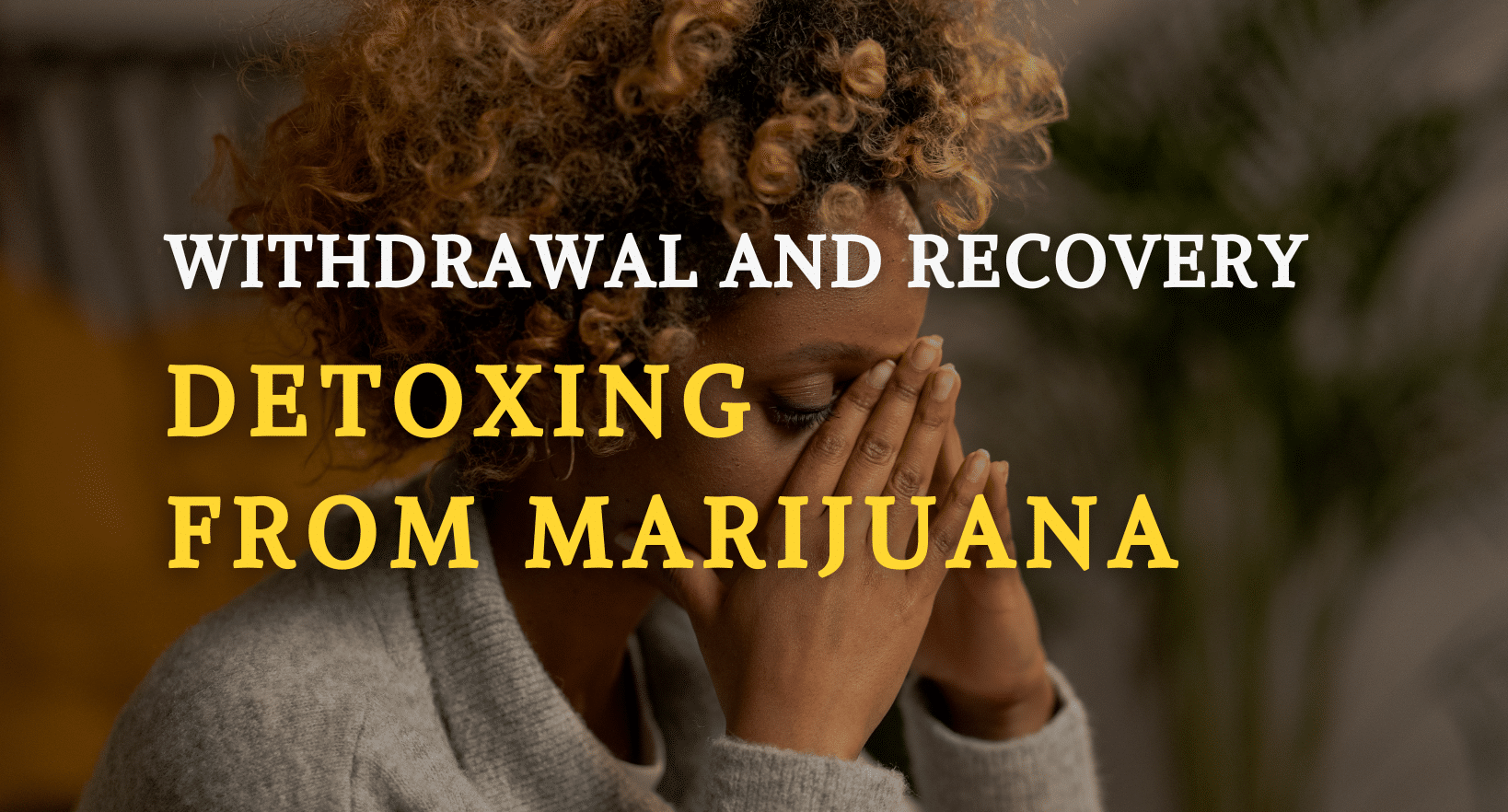
While marijuana is not as addictive as other drugs, such as cocaine or heroin, it is entirely possible to form a dependency upon it.
We published a comprehensive guide on how to quit smoking weed . If you regularly use weed, or are concerned that you or a loved one may be addicted to it, there are a number of signs to look out for. This article describes some of the strongest indicators of weed addiction.
1. Increased Tolerance
As with most drugs, marijuana tolerance increases with use. If you notice that you continually need to use more weed to achieve the desired effect, this may be a sign of addiction.
The part of your brain responsible for building tolerance to marijuana and other substances actually happens on the cellular level. Your brain chemistry changes with repeated marijuana use in order to adapt to exposure and improve physiological balance and functionality while under the effects of marijuana.
As marijuana dependence increases, you may find it begins to have an impact on your social life and finances. Early warning signs of addiction include when more of your time spent with others is about finding and using more marijuana, which can be exasperating for those who don’t partake and may affect those relationships. Cannabis addiction will also be reflected in your spending, as the cost of more and more cannabis use adds up.
2. Withdrawal From Weed
If reducing or fully stopping your weed intake causes you to experience withdrawal symptoms, this is a sign of addiction. While withdrawal symptoms for weed are not as intense as those for alcohol or other drugs, they can still be extremely disruptive and challenging. They may include irritation, anxiety, difficulty sleeping and physical discomfort. As weed functions to repress dreams, someone in withdrawal may also experience vivid, alarming dreams.
Thankfully, there is little to no risk of substantial harm from the psychological and physical symptoms of marijuana withdrawal. During abstinence, the chance of relapse poses little to no significant health risks, unlike opioids where returning to the same dose or higher can potentially result in a fatal overdose if the body’s tolerance is lessened. The worst of the symptoms of withdrawal include sleep difficulties and decreased appetite.
Related Reading: How Long Does Weed Withdrawal Last? (A Detailed Timeline)
3. Anxiety About Not Being Able to Smoke
People struggling with addiction will often experience discomfort or anxiety at the prospect of not being able to use substances. If you notice yourself reacting in this way to the idea of being unable to smoke weed for a sustained period of time, you may be addicted. If you seek ways to avoid situations where you will be unable to smoke, this is another strong warning sign.
As you become accustomed to relieving anxiety through cannabis use or associating drug use with comfort, the problem can spiral until you become completely dependent on marijuana in order to cope with daily challenges and stresses.
This dependence can begin to cross boundaries in your life as you begin to consider marijuana use to cope with professional or familial stresses. Before you know it, there are fewer and fewer aspects of your life that don’t involve use of the drug.
4. Using More Than Intended
If you often find yourself using significantly more weed than you’d intended or expected to, this is a sign of addiction. If you have a certain amount set aside for use but end up using more, this indicates that you may be unable to impose limits on your use. This is a strong indication of a dependence.
Because you build a tolerance you will need more marijuana to feel the same effects. It is normal that the amount of the drug you’ve typically smoked will no longer satisfy, which is among the key warning signs of developing marijuana use disorders.
It can become difficult to manage marijuana use for frequent users, especially if you have started using the drug to relief stress or anxiety.
Another of the psychological consequences of substance use disorder is that it can become easier to convince yourself to use more or circumvent self imposed limits.
As barriers to use are eroded, you can begin to put yourself in potential legal risks associated with uncontrolled marijuana consumption, such as driving under the influence.
5. Dishonesty About Use
If you often lie about or hide the extent of your weed habit, this may be a sign of addiction. If you notice that you understate your own use to yourself when thinking about it, this is another strong indicator. Giving an honest account to yourself of your habits is an important step towards understanding whether you have a problem and admitting it to yourself if you do.
Being dishonest about your drug use can also lead to relationship problems. It can often be evident if you have been smoking marijuana, as there are common signs including behavioral signs, increased appetite, dry mouth, red or shallow eyes, and a distinct and strong odor in the case of marijuana smoke.
If you frequently lie about marijuana use and it is obvious you have been using it, you will lose credibility and trust in your relationships.
6. Avoiding Other Commitments
When a substance or behaviour causes you to avoid or cancel other commitments or activities, this is a sign of addiction. If weed takes precedence over other aspects of your life, particularly important ones, you definitely have an unhealthy relationship with the drug and may have a dependency. This is also one of the ways in which your addiction can negatively impact your life. Avoiding or cancelling commitments is likely to weaken your support network, affect your professional circumstances, and isolate you from others. Becoming isolated is also likely to worsen your addiction and any concurrent disorders you may have.
As marijuana use becomes more important to you, it becomes easier to choose using the drug over work and other responsibilities. One of the significant negative effects of marijuana addiction over a longer period is motivational disorder, as it will slowly erode your other interests and your ability to place importance on other commitments.
The long term effects of neglecting responsibilities and relationships will leave you with little else in your life besides a sever cannabis use disorder. Later in life, you may look back to find that you have missed out on important opportunities and events, opting for time to use the recreational drug instead.
7. Interfering With Responsibilities
If you have identified that your use of weed has negatively impacted your relationships and professional standings, but have failed to reduce it, this is another strong sign of addiction. As soon as you observe negative patterns related to your habit, you should immediately reduce or fully end your intake. If you find this very difficult to do, it may be time to seek professional help.
When you do find time for your responsibilities, one of the symptoms of marijuana addiction is that you aren’t able to fully enjoy or focus on what’s happening. You will likely be distracted and rush to complete it, as part of your thoughts are always about when the next opportunity will be to smoke marijuana.
8. Failing to Cut Down
Often one of the clearest signs of an addiction is the repeated failure to cut down. Attempting to cut down in the first place is an acknowledgement that your habit is excessive and causing some problems. It is a progressive step to accept this. However, if the attempts are unsuccessful, this suggests that you may be addicted. If repeated attempts to cut down have failed, it may be time to seek professional support.
Some of the psychological barriers your brain is responsible for that might prevent cutting down include cravings and mood changes which make it difficult to think clearly and make good decisions relating to your addiction. Other psychological signs of marijuana addiction include feeling anxious about not having marijuana, making it hard to think about anything else to the point where you convince yourself to find and use cannabis for relief.
9. Dependence For Relaxation
If you depend on weed to relax, sleep or concentrate on your activities, this indicates an unhealthy dependence. If you consistently use substances to achieve a comfortable mental or physical state, you are likely to develop an addiction. While some people use prescribed weed for its medicinal qualities, it is important to do so under the supervision of a medical professional. This will help to ensure that the habit does not become problematic. If you depend on weed to cope with concurrent disorders such as anxiety or depression this is also likely to increase your reliance upon it.
When trying to overcome marijuana use disorder, there is a risk of substituting one form of dependence for another. There are often co-occurring mental health disorders at the root of addiction, and if you’re able to cease use of one drug, be careful that that addiction is not replaced with another. If substituting addiction occurs, you may need to seek professional support in order to address the root of your addictive tendencies.
10. Denial and Rationalization of Usage
If you begin minimizing the effects of marijuana, concealing misuse, or placing blame on others for the habit, you are likely in denial about your marijuana use disorder.
It can also be tempting to create excuses for why your cannabis use is needed, such as stress relief or social reasons. While you may believe that marijuana helps you with relaxing or being social, it is not a healthy way to cope or adjust to these situations. You are much better off learning healthy coping methods that don’t involve the use of a drug like marijuana, as the long term effects include lung problems and feeling unable to socialize without it.
Other signs of marijuana use disorder include reacting with anger or defensiveness when friends or family express concern about your marijuana use. If people close to you express concern about your cannabis use, there is likely a good reason. While you may not want to hear it, it is best to try and appreciate their concern rather than getting frustrated. Effective treatment for cannabis use disorder does exist, and it is a great benefit that there are people in your life showing concern.
Treatment for Weed Addiction
If you have observed a number of these signs in yourself or a loved one, it is time to stop using weed. You may require professional help to do this. Trafalgar Addiction Treatment Centres uses evidence-based methods that have proven effective in treating weed addiction. These include dialectical behavioural therapy, cognitive behavioural therapy, and group counselling. We offer both residential and online programs.
These methods allow our clients to identify the underlying causes and consequences of their addiction. They also help them to develop methods for dealing with them. As recovery is a lifelong process, we also provide our clients with aftercare support through our Aftercare and ContinUcare programs. Trafalgar’s support continues long after initial treatment is completed.
Meet Our Renowned Experts
You will receive treatment from the very best.
We have a team of accredited professionals who have many years of clinical and research experience.
Our Rehab Programs
Consult with a professional now to learn how we can help you or your loved one.






